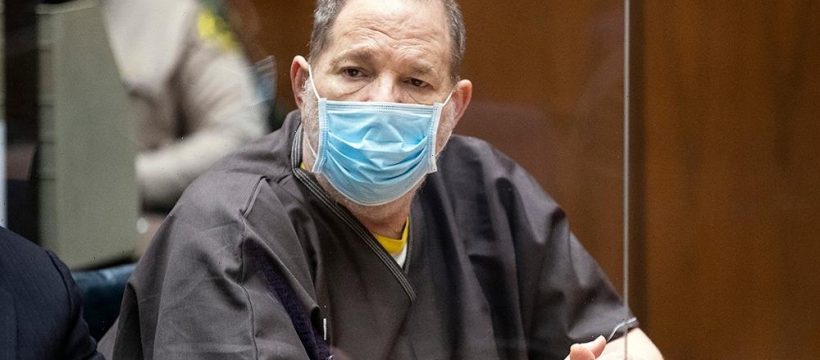Harvey Weinstein’s lawyers succeeded again on Thursday in persuading a Los Angeles judge to dismiss one charge of sexual battery, on the grounds that it fell outside the statute of limitations.
Weinstein still faces 10 counts of rape and sexual assault, which involve four women and date from 2004 to 2013. The disgraced producer was extradited last month from New York, where he was serving a 23-year sentence. His Los Angeles trial is expected to begin sometime next year.
At Thursday’s hearing, the attorneys discussed how many “prior bad acts” witnesses could be called to testify. Such witnesses can be helpful to the prosecution in supporting the victims’ allegations.
The prosecution has indicated to the defense that as many as 30 such women could testify. But before the hearing, prosecutor Paul Thompson said he was likely to ask the court to approve 10-12 witnesses. The defense is expected to argue that none of the women should be allowed to testify.
At Weinstein’s New York trial, three such witnesses took the stand, and told the court that Weinstein had raped or sexually assaulted them. Their testimony helped buttress the claims of the two primary victims in the case. The use of such witnesses can be controversial, and it has been a subject of appeals in both Weinstein’s New York case and Bill Cosby’s case in Pennsylvania.
The charge that was dismissed dates from May 11, 2010, when Weinstein allegedly assaulted a woman at a Beverly Hills hotel room. Prosecutors first charged Weinstein with the crime in April 2020 — that is, just within the 10-year statute of limitations. But the defense has argued that the ensuing indictment, which was unsealed last month, came after the statute had expired.
Judge Lisa B. Lench had dismissed the charge on July 29, but allowed prosecutors the chance to amend and refile it.
The prosecution did so, arguing that the indictment had merely superseded the original complaint and did not create a new prosecution. After a lengthy argument on Thursday, Lench again granted the defense motion to dismiss the charge. Lench held that the prosecution had failed to present facts to the grand jury showing that the 10-year statute of limitations had not expired.
The prosecution could reconvene the grand jury and present such facts, though it was unclear Thursday morning whether it would do so.
Defense attorney Alan Jackson argued that the prosecution would not be able to salvage the count.
“That count is going away and it’s never coming back,” he said outside court. “It’s gone forever.”
Source: Read Full Article
